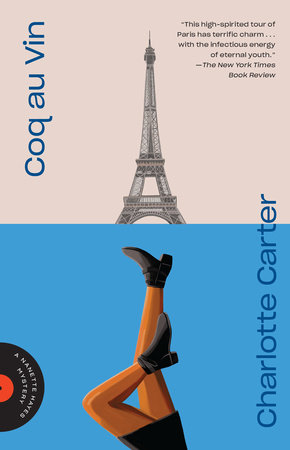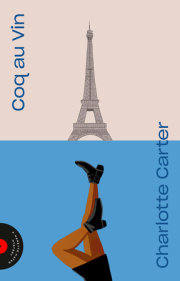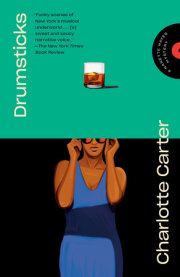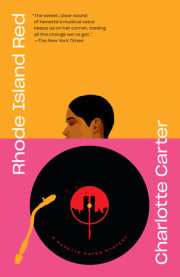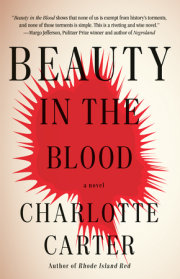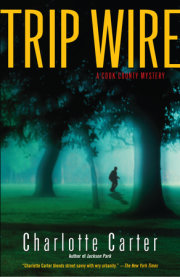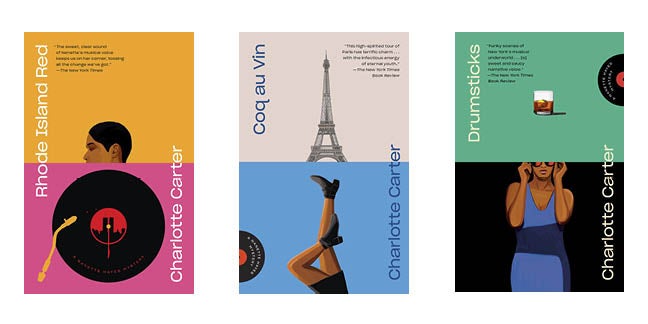CHAPTER 1
TRAVELIN’ LIGHT
Damn, I was tired. My saxophone seemed to weigh more than I did.
I had awakened early that morning and immediately commenced to fill the day with activity—some of it necessary but most of it far from pressing.
I played for a time in midtown, a little north of the theater district; made some nice money. That wasn’t my usual stomping ground. I had picked the corner almost at random. I don’t know why I did so well. Maybe the people had spring fever, hormones working, calling out for love songs. In fact, the first song I played was “Spring Fever.” When you play on the street, you never know why you’re a hit or a bust. Is it the mood of the crowd? Is it you? Is it the time of day or the time of year? Anyway, you do the gig and put your money in your belt and move on.
Next, I power walked up to Riverside Park and played there for a while; did my two hours’ volunteer work at the soup kitchen on Amsterdam; bought coffee beans at Zabar’s; took the IRT downtown; bought a new reed for the sax on Bleecker Street; picked up some paint samples at the hardware store; then played again on lower Park Avenue, closer to my own neighborhood.
Makes me sound like a real flamer, doesn’t it? A go-getter, a busy bee. Not true. I’m lazy as hell.
What I was doing was trying to outrun my thoughts. That’s what all that busy work was about.
Over dinner the previous night, the b.f. (the shithead’s name is Griffin) had announced, number one, he wouldn’t be spending the night at my place because he had other plans, and number two, he had other plans . . . period.
I should have known something was up when he said to meet him at the little Belgian café I like in the Village—the other side of town from my place. He hated the food there, but it was convenient for his subway ride home.
This kind of thing has happened to me before. The relationship is at some critical point—or maybe not; maybe it’s simply that a certain amount of time has passed and I’m reevaluating it. I meet his family. Mom wants to know if this is “the real thing.” I’m asking myself constantly, Is the sex really that good? Should I stay in or should I get out?
And then, a couple of weeks later, before I come to a final decision, he splits.
What’s with that?
I always seem to end up asking myself that question. What is with that?
I didn’t spend the night crying or anything. I merely came in and stripped out of my clothes and snapped on the radio and finished whatever brown liquor I had in the cabinet. Temper tantrum aside, breaking the porcelain planter in the living-room window had been more of an accident than anything else.
Sleep was a long time coming. But when I awoke in the morning, I just started moving like this—manic.
Now I was exhausted. I packed up my sax and started the short walk to my apartment near Gramercy Park.
Our homeless guy was back. It had been so long since anybody had seen him on the block, we all figured he was dead. But here he was again, in a neck brace, evil as ever, begging for dollars and cussing at anybody with the nerve to give him coins. “Why don’t you comb your hair?” he called after me when I stuffed a single into his cup.
I made a quick run to the supermarket and then into the benighted little corner liquor store where a white wine from Chile is the high-end stuff.
I had poured myself a glass, turned on the radio, and read through the mail before I remembered to check the answering machine.
“Nanette, it’s me. About tonight. You’re still coming over to eat, aren’t you? Because I’ve got something to tell you. It’s . . . I’m . . . Well, I’ll tell you when you get here. I’m going out now to pick us up some food at Penzler’s. You still eat pork, don’t you, baby?”
Mom!
Oh shit.
I had forgotten. Two weeks ago I had said maybe we’d have dinner—I walked over to the kitchen calendar—tonight.
I was in no mood to see anybody tonight, let alone Mom, for whom I’d have to put on an act—make out that things were fine between me and Griffin, and that my fabulous—and utterly fictitious—part-time job teaching at NYU was going great. I’d have to be careful never to mention the sax or my street friends or anything remotely connected to my career as an itinerant musician on the streets of Manhattan. She might have been able to handle it if she ever found out that the teaching job was a lie (I was getting steady translation work, at least). But she would have gone absolutely crazy if she knew I blew sax on the street corners with an old fedora turned up to catch the cash. And I’d have to haul my ass on the F train out to Queens.
Well, I just wasn’t going to make it. Not with all these papers to grade. Not with this pneumonia, cough cough. Not tonight. Tomorrow maybe, but not tonight.
I’ve got something to tell you.
I turned that gossipy, girlish phrase over in my mind. What was there about that locution that troubled me so? It didn’t sound like Mrs. Hayes, that’s what. It just did not sound right. And, come to think of it, there was a bit of a quaver in her voice, too.
Oh, God. She’s sick. Heart. Cancer.
I rushed to the wall phone and dialed her number. No answer.
I threw my jacket on and locked up.
Halfway to the subway, I realized I was probably being crazy. There were only about three million other reasons my mother might have had to sound worried. Maybe it really was something about her health, but that didn’t have to mean that death was knocking on the door.
So why hadn’t she answered the phone? She was probably still at Penzler’s—Elmhurst’s answer to Dean & DeLuca—inspecting the barbecued chickens and braised pork chops and waiting on line for a pound of potato salad. Or out in the backyard. Or over at the Bedlows’ house, picking up one of Harriet’s cobblers for our dessert.
By then I was at Sixth Avenue. I turned downtown instead of north to the Twenty-third Street station. It was a spur-of-the-moment thing. I had suddenly decided I needed a drink before heading out there, and I needed a little reassuring from the one person whose level head and unfailing equilibrium I could always depend on: my one and only homegirl, Aubrey Davis. Who works as a topless dancer.
We knew early on, at about age nine, that I was the whiz at sight-reading music, inventing lies more believable than the truth, and forging my mother’s signature. “Very bright, but a bit unfocused,” one of my teachers had told Daddy on parents’ night.
Aubrey, however, was the one to call when you wanted to see some dancing. She struggled mightily to teach me one or two moves. But it was no good. I could work the shoulders, and I could usually work the hips, too—just not at the same time. To this day, when I hit the dance floor I look like a holdup man who realizes too late that his victim is carrying a Taser. By the time we were fourteen we’d both thrown in the towel on my dancing career.
It was about that time, on a summer day, that Aubrey’s mother abandoned her. She went off to play cards with some people and just never came back. In school, I was the brightest star in the heavens, but Aubrey, when she deigned to join us, was the butt of the kids’ pitiless taunting—about her clothes, about her poverty, about her mother, and in time, about her morals. The oddsmakers wouldn’t have laid ten cents on Aubrey’s chances of getting through life in one piece. They’d have lost. She is a genius at taking care of herself. And my girl never wastes a second looking backward.
Anyway, Aubrey is now one of the bigger draws at Caesar’s Go Go Emporium, which is exactly the kind of place it sounds like, tied however circuitously to the mob and located in that one dirty corner of Tribeca where Robert De Niro has not yet bankrolled any émigré restaurateurs.
She performs topless, like I said, and what she wears over the nasty bits is barely worthy of the term “panties.” Between weekly pay and tips she makes a pretty impressive salary, only a fraction of which gets declared to the tax folks. I don’t know all the details, but I believe Aubrey has an enviable little portfolio going, thanks to one of her Wall Street admirers. I can always hit her up for money, but I made a vow long ago never to do so unless I was starving. See, if you ask her for a couple hundred, the next thing you know, she’s putting down a deposit on a new co-op for you. She is that generous. She is also a great beauty, and I love her madly. So does my mother, who took turns with the other grown-ups in the neighborhood in trying to raise her.
I heard the pounding bass line from halfway up the block. Caesar’s. I hate that fucking place. I hate the white men in their middle-management ties who come in for their fix of watery scotch and flaccid titties. I hate the rainbow coalition of construction worker types in their Knicks T-shirts drinking Coors and spending their paychecks on blow jobs. And I’ve got zero patience with all of them. Not Aubrey, though. She understands men—all kinds of men. And boy, do they love her and her Kraft caramel thighs and her cascades of straightened hair and her voice like warm apple butter.
It is little wonder that Aubrey became a superstar, if you will, at Caesar’s. A lot of the other dancers are distracted college girls who’d rather shake their ass in a dive than work behind a cosmetics counter somewhere, or they’re strung out on crack and pills. But Aubrey, who isn’t even much of a drinker, is focused, engaged, thoroughly there when she’s dancing. She has a fierce kind of dedication to her work, and the guys seem to pick up on that immediately. It is the damnedest thing, but they appear to respect her.
There was no one onstage when I walked into the darkened room. The girls were taking a break. I walked double time through the crowd of horny men and had almost made it back to the dressing rooms when I heard a male voice call my name. My whole body stiffened for a few seconds. I kept walking, but the voice rang out again: “Hey, Nan!”
I stopped and turned then. I couldn’t believe that any man who actually knew me would not only be hanging in a place like this but would actually want me to see him in here.
To my relief, it was only Justin, the club manager. He was standing at the end of the bar, his signature drink, dark rum and tonic, in one hand and one of those preposterously long thin cigarettes in the other. Justin, self-described as “white trash out of Elko, Indiana,” is Aubrey’s most ardent fan. Of course, his admiration for her has no sexual dimension.
Justin has a benign contempt for me that actually manifests itself as a kind of affection. I’m just not a femme—his word for a certain kind of lady that he idolizes. (Femmes, you see, are a subgenre of women in general, all of whom he refers to as “smash-ups.”) In any case, he is absolutely right—I am no femme: I don’t sleep all day, as Aubrey does, and then emerge after sundown like a vampire; I never paint my nails; I don’t own a garter belt or wear spike heels before 9 p.m.; my hair is Joan of Arc short; I don’t consider the cadging of drinks one of the lively arts; I don’t share his and Aubrey’s worship of Luther Vandross; and, probably my worst sin, I cannot shake my boody. The truth is, he thinks I’m overeducated and a secret lesbian. Justin does not understand going to college and does not approve of lesbians. But he likes me in spite of himself and, giving the devil his due, he says my breasts are “amazing.” We’ve been out drinking together a couple of times, once just the two of us and once with an old lover of mine, an Irishman who is still turning heads at age forty-two. Yeah, Tom Farrell garnered me quite a few Brownie points with Justin. On the other hand, Griffin, my ex, met Justin once, and the two of them scared each other half to death.
Copyright © 2021 by Charlotte Carter. All rights reserved. No part of this excerpt may be reproduced or reprinted without permission in writing from the publisher.

